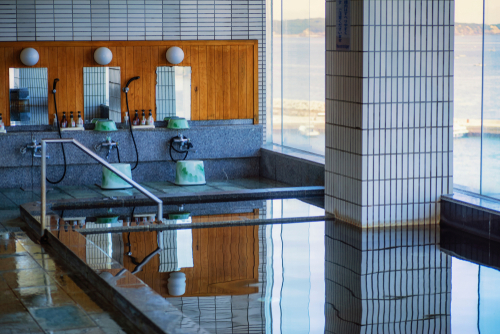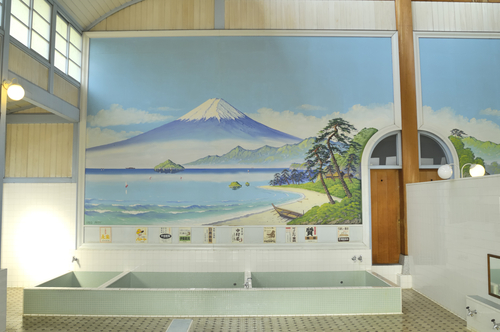Visiting Japan with tattoos can feel overwhelming when you hear about the country’s traditional policies toward body art. Many travelers worry they’ll be turned away from one of Japan’s most beloved cultural experiences: soaking in natural hot springs called onsen. The good news is that attitudes are changing, and you have more options than you might think.
This guide provides clear, practical information about visiting onsen with tattoos based on current policies and real traveler experiences. You’ll learn which onsen welcome tattooed guests, how to find tattoo-friendly facilities, and alternative ways to enjoy Japan’s bathing culture.
Understanding these options helps you plan confidently and avoid disappointment during your trip to Japan.
Understanding Japan’s Historical Tattoo Policies
Japan’s restriction on tattoos in public bathing facilities stems from their historical association with organized crime groups called yakuza. Many yakuza members have elaborate full-body tattoos called irezumi, which led to tattoos becoming stigmatized in Japanese society.
Traditional onsen, sento (public bathhouses), and many hotels implemented blanket bans on anyone with visible tattoos. These policies aimed to maintain a family-friendly atmosphere and avoid making other guests uncomfortable.
However, Japan’s tourism industry has recognized that these restrictions affect millions of international visitors who view tattoos as personal expression rather than criminal affiliation. This has led to gradual policy changes across the country.
Current Onsen Policies for Tattooed Visitors
Tattoo-Friendly Onsen
Many onsen facilities now welcome guests with tattoos. These establishments fall into several categories:
International hotel onsen: Large hotel chains like Hilton, Hyatt, and international resort properties typically allow tattoos in their onsen facilities. They cater to global travelers and have adapted their policies accordingly.
Tourist-area onsen: Hot spring facilities in popular tourist destinations often accommodate tattooed guests. Areas like Hakone, Nikko, and parts of Kyushu have numerous tattoo-friendly options.
Private onsen: Kashikiri or private family baths eliminate concerns about other guests. You can reserve these rooms by the hour and enjoy complete privacy regardless of your tattoos.
Size and Coverage Restrictions
Some onsen have adopted middle-ground policies based on tattoo size and visibility:
Small tattoo acceptance: Facilities may allow small tattoos (roughly palm-sized or smaller) without restrictions.
Cover-up policies: Certain onsen permit larger tattoos if you cover them with special waterproof patches or bandages available at drugstores throughout Japan.
Discretion-based policies: Staff may make individual decisions based on tattoo content, size, and location on your body.
How to Find Tattoo-Friendly Onsen
Research Tools and Resources
Official websites: Many onsen now clearly state their tattoo policies on their websites. Look for terms like “tattoo OK” or “入れ墨可能” in Japanese.
Tourism boards: Local tourism offices maintain lists of tattoo-friendly facilities. The Japan National Tourism Organization (JNTO) provides updated information on their website.
Travel apps: Apps like Tattoo Spot and Onsen Tatoo specifically help travelers locate tattoo-friendly hot springs across Japan.
Hotel concierges: Hotel staff can recommend nearby facilities and may even call ahead to confirm policies for you.
Useful Japanese Phrases
Learning a few key phrases helps you communicate with staff:
- “Tattoo wa daijoubu desu ka?” (Is it okay to have tattoos?)
- “Watashi wa tattoo ga arimasu” (I have tattoos)
- “Chiisai tattoo desu” (It’s a small tattoo)

Alternative Bathing Experiences
Private Onsen Options
Ryokan with private baths: Traditional Japanese inns often offer private outdoor baths in guest rooms or reservable private facilities.
Day-use private onsen: Many facilities rent private bathing rooms by the hour, perfect for couples or families wanting privacy.
Glamping resorts: Modern outdoor resorts frequently include private hot spring access as part of their accommodation packages.
Sento with Flexible Policies
Public bathhouses in urban areas often have more relaxed attitudes than traditional rural onsen. Tokyo, Osaka, and other major cities have numerous sento that welcome tattooed guests.
Hotel and Resort Facilities
International hotel chains and modern resorts typically allow tattoos in their spa and bathing facilities. These venues understand international travelers’ expectations and adapt their policies accordingly.
Regional Differences Across Japan
Tokyo and Urban Areas
Major cities tend to be more accepting of tattoos. Tokyo has numerous tattoo-friendly onsen, particularly in areas like Shibuya, Shinjuku, and Asakusa.
Traditional Onsen Towns
Historic hot spring destinations like Beppu, Kinosaki, and Kusatsu have mixed policies. Some maintain traditional restrictions while others have adapted to welcome international visitors.
Hokkaido and Okinawa
These regions often show more flexibility toward tattoos, partly due to their unique cultural identities and tourism focus.
What to Expect During Your Visit
Onsen Etiquette for Tattooed Visitors
Follow standard onsen etiquette regardless of your tattoo status:
- Wash thoroughly before entering the bath
- Keep towels out of the hot water
- Remain quiet and respectful
- Don’t stare at others or take photos
Handling Reactions
Most Japanese people are polite and unlikely to comment directly on your tattoos. If you encounter any issues, remain calm and respectful. Staff will typically handle any complaints from other guests professionally.
Cover-Up Options
If you choose to cover tattoos, waterproof patches work for small designs. Larger tattoos may require multiple patches or special sleeves designed for bathing.
Planning Your Onsen Experience
Before You Travel
Research your destinations and create a list of tattoo-friendly facilities. Make reservations when possible, especially for private onsen experiences.
Communication Strategies
Consider carrying a translation app or written explanation of your tattoo policy questions in Japanese. This helps ensure clear communication with facility staff.
Backup Plans
Always have alternative bathing options identified in case your first choice doesn’t work out. Hotel facilities or private options provide reliable alternatives.
Frequently Asked Questions
Can I use onsen with small tattoos?
Many onsen now accept small tattoos without restrictions. The definition of “small” varies by facility but generally refers to tattoos smaller than your palm. Always check with individual facilities or look for their policies online.
Are there onsen that specifically welcome tattoos?
Yes, numerous onsen actively welcome tattooed guests and advertise this policy. Tourist areas, international hotels, and modern facilities are most likely to have tattoo-friendly policies.
What should I do if I’m refused entry?
Remain polite and respectful if refused entry. Ask staff if they can recommend nearby tattoo-friendly alternatives. Many facilities that maintain traditional policies can still provide helpful suggestions for other options.
Do cover-up patches really work in hot water?
Waterproof tattoo cover patches designed for bathing can effectively hide small tattoos in hot water. However, they may not stay secure for extended soaking sessions or with very hot water temperatures.
Are private onsen expensive?
Private onsen costs vary widely depending on location and luxury level. Day-use private facilities typically cost 2,000-5,000 yen per hour, while ryokan with private baths represent a larger accommodation investment.
Can I visit onsen with temporary tattoos or henna?
Temporary tattoos and henna may still cause concern at traditional onsen since staff cannot immediately distinguish them from permanent tattoos. Consider covering temporary designs or choosing tattoo-friendly facilities.
Making the Most of Your Japanese Bathing Experience
Japan’s onsen culture offers incredible relaxation and cultural insight, and having tattoos shouldn’t prevent you from enjoying this experience. With proper research and realistic expectations, you can find facilities that welcome you warmly.
Focus on preparation by researching tattoo-friendly options in your destination areas. Consider mixing traditional onsen visits with private bathing experiences and modern hotel facilities. This approach ensures you experience Japan’s bathing culture while respecting local customs and your own comfort level.
Remember that attitudes continue evolving, and more facilities welcome international visitors each year. Your respectful approach to onsen etiquette and cultural sensitivity helps create positive experiences for future tattooed travelers to Japan
